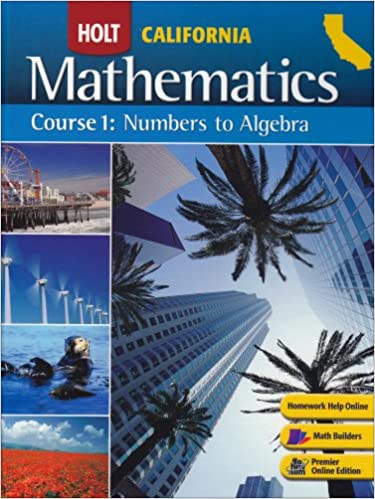By Ron Liskey | Earth Date: Aug 12, 2020 CE
About the Class
In sixth grade, we focus on the following topics: 1) developing greater fluency in arithmetic skills learned in prior grades—in particular fractions, decimals and percents; 2) developing the ability to solve increasingly complex mathematical challenges; 3) working with ratios and rates; 4) developing a deeper understanding of rational numbers and integers; 5) writing, interpreting, and using expressions and monovariate equations; 6) converting between different units of measurement; 7) determining the shapes and sizes of basic geometric shapes; and 8) applying mathematical reasoning to solve real world questions taken from our physics main lesson block and selected current events.
A primary goal will be to consolidate and deepen student understanding of all previously learned mathematics. We will do this through our study of business math and money, exchange rates, percentages, interest and inflation, profit and loss, alternate number systems and place value, fractions, ratios, proportions, simple linear equations, graphing data, and plane geometry.
Weekly Schedule
| Monday | Tuesday |
Wednesday | Thursday | Friday | |
|---|---|---|---|---|---|
| Main Lesson 8:30 - 10:30 |
Physics | ||||
| Break 10:30 - 11:00 |
|||||
| First Period 11:05 - 11:50 |
Math Grade 6 |
Math Grade 8 |
Math Grade 8 |
Math Grade 8 |
Math Grade 8 |
| Second Period 11:55 - 12:40 |
Math Grade 7 |
Math Grade 7 |
Math Grade 6 |
Math Grade 7 |
Math Grade 7 |
| Lunch 12:40 - 1:20 |
|||||
| Third Period 1:25 - 2:10 |
Math Grade 8 |
Math Grade 6 |
Math Grade 7 |
Faculty Meetings |
Math Grade 6 |
| Fourth Period 2:15 - 3:00 |
Tutoring Grades 7 & 8 |
Tutoring Grade 6 |
|||
Assignments
Assignments are posted on the class website.
Assessments
There will be frequent short quizzes and occasional cumulative quizzes. Students who pay attention, ask questions, and keep up with the work should not fear quizzes. They might even enjoy them.
Progress Reports
Progress reports are posted here. Each family has a confidential link to their report. If unable to access, contact me.
Grading
This is a graded class. Participation, effort, quality, completion, and evidence of understanding are important. Extra effort and significant progress is recognized.
Textbooks
 We will use the textbook, Mathematics Course 1.
We will use the textbook, Mathematics Course 1.
Study Materials
Required study materials will be supplied by the school. If you need any of these materials, contact me.
| Regular Class Materials | |
|---|---|
| Ruler: 18” Metric and US | Main lesson book pages |
| Compass | #2 pencils |
| Protractor | Colored pencils |
| Triangles (90-45-45 and 90-60-30) | Pencil sharpener |
| Notepaper (unlined bond 3-hole punched) | Eraser |
| Graph paper | Additional project materials. TBD |
| Textbook and workbooks | Homework folders |
| 3-Ring binder |
Summer Study
Students can prepare by reviewing multiplication up to $12 \times 12$, and practicing the four operations at the highest level they can work at 90% accuracy or better. The goal is not to struggle through new material, but to refresh the memory of prior learning.
I maintain some online practice sheets for reviewing basic skills. Each time you refresh the browser, a new set of problems is randomly created. Answers are printed on the second page.
Contacting the Teacher
The fastest way to reach me is email. To schedule a meeting, send a message with a few proposed times.
Copyright (c) 2024, Ron Liskey



